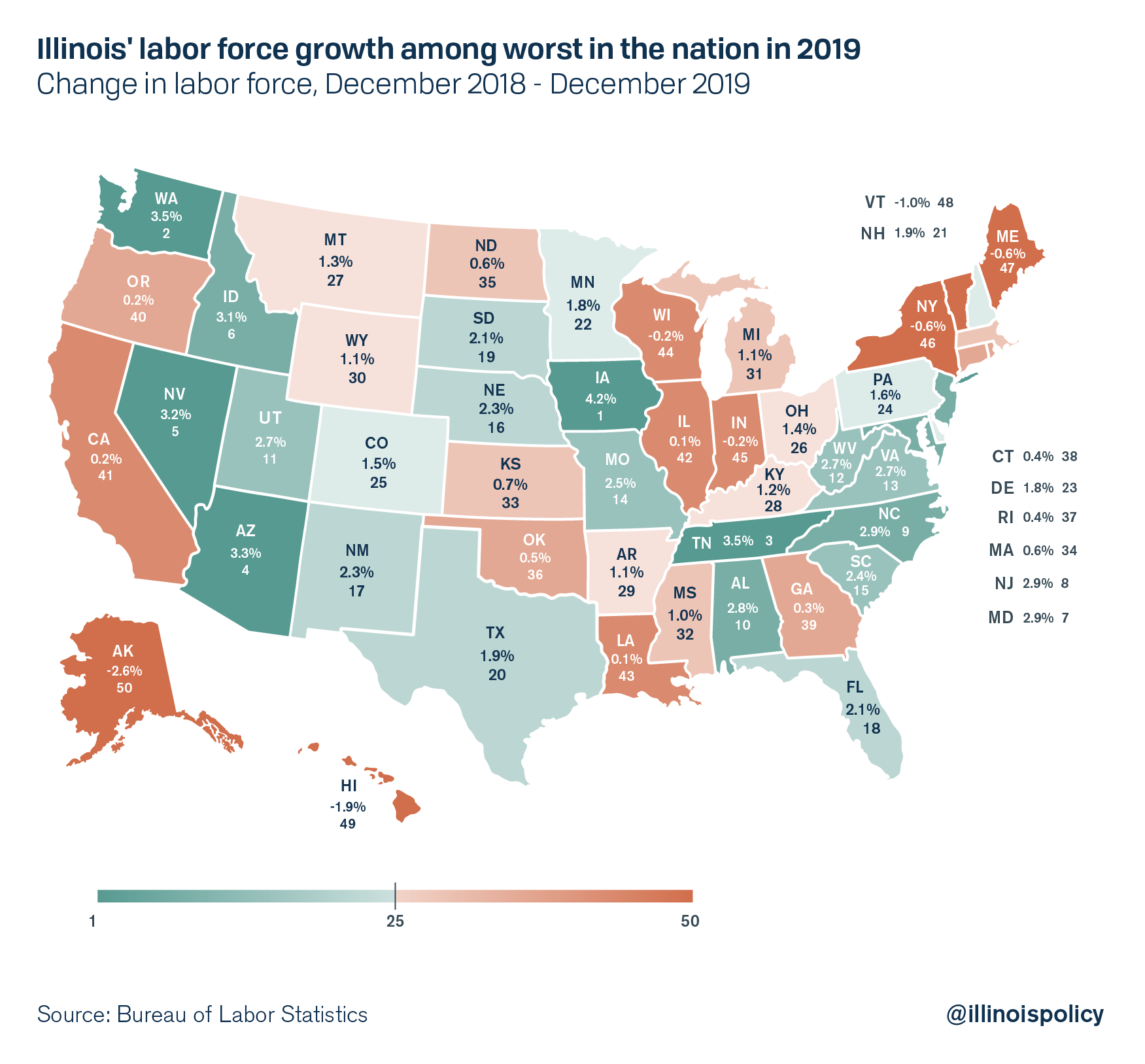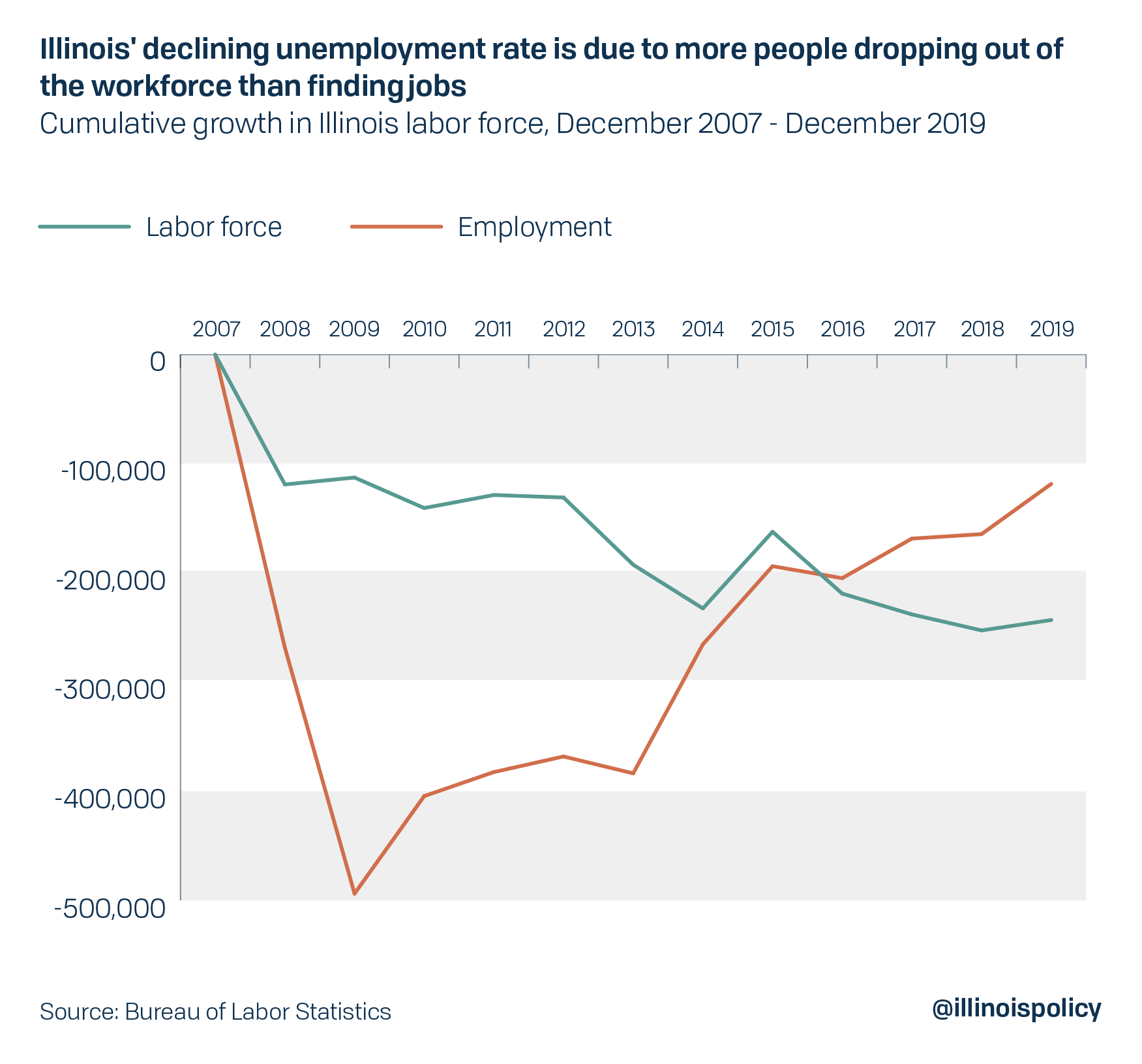Suburban mayor opposes adding 1,500 jobs as Illinois struggles with employment
Amazon bought the old commercial property, but Bolingbrook’s mayor opposes putting 1,500 jobs on it. Illinois’ job growth was below the national average in 2019.
Bolingbrook Mayor Roger Claar flatly rejected Amazon’s bid to build an 825,000-square-foot fulfillment center, bringing 1,500 jobs to the suburb southwest of Chicago.
Claar, who has been mayor since 1986, raised issues with Amazon’s pledge to pay workers $15 an hour. He told Crain’s Chicago Business he would rather see jobs that pay people more than minimum wage so they have discretionary income to spend in the local economy.
“That’s not even a living wage,” he told Crain’s. “Will County is full of distribution centers. There are tons of jobs like this.”
Amazon currently employs 7,000 workers in Will County, has another facility in Romeoville and plans to add another 500 jobs at a fulfillment center planned in Channahon.
Amazon in January bought the land in Bolingbrook for $50.5 million. The 119-acre site on Illinois 53 near Interstate 55 was an auto auction business and previously an indoor amusement park and mall called Old Chicago.
Amazon would need changes to the village’s zoning rules before they could build their center. Claar said the village board gave him no objections when he voiced his displeasure with the project, indicating a battle is ahead for Amazon.
In addition to Claar’s wage objections was the look of the warehouse. He said it would be too tall and unsightly, hurting Bolingbrook’s image. The plan calls for a windowless building of about eight to nine stories, which is above the village’s height restrictions.
Claar said Amazon informed him the warehouse would add about 200 trucks a day to the area’s traffic. He said the truck traffic would be a nightmare.
Amazon’s desire to add these 1,500 jobs comes at a critical time in Illinois. The state added only 45,000 nonfarm payroll jobs in 2019 – an increase of just 0.7% and less than half the national average. Private sector job growth in Illinois ranked 42nd in the country.

The state’s unemployment rate has been slowly declining to 3.7%, 31st in the nation. But that low rate is because Illinoisans have fewer opportunities and are giving up on finding jobs, not because they are going to work.

In his State of the State address, Gov. J.B. Pritzker touted 2019’s job numbers. However, Pritzker’s numbers were the lowest of any elected governor’s first year since 2007, when former Gov. Rod Blagojevich had growth of just 0.5% as the Great Recession hit.
Recent tax hikes have already fostered an environment in Illinois that makes it harder for Illinoisans to find work and reduces wage growth prospects for those who are employed. While the rest of the nation has experienced robust employment growth in the past decade, with payrolls far exceeding their 2007 levels, Illinois has struggled to add jobs.
Since 2007, Chicago has added a mere 241,000 jobs, the second-worst performance in percentage terms among the 15 most-populous metropolitan areas. Meanwhile, the rest of the state has actually lost jobs since 2007, shedding more than 41,000 jobs.
Adopting the governor’s progressive income tax proposal would prolong the state’s labor market troubles, likely costing the state thousands of jobs and encouraging even more Illinoisans to exit the workforce. Instead of again asking taxpayers for more, lawmakers need to pursue real reforms that would put the state on firm fiscal footing and give much needed certainty and tax relief to families and businesses.
First, Illinois must address its pension problem by amending the Illinois Constitution to allow for adjustment of the growth rate of not-yet-accrued benefits. The state can reduce pension debt and ensure the plans can support retirees without overwhelming taxpayers. Such changes could include increasing the retirement age for younger workers, tying annual benefit increases to the actual cost of living and making retirement plans more closely resemble 401(k)s for new workers.
Second, a spending cap could help the state meet Illinois’ constitutional balanced budget requirement, which has been ignored for nearly 19 years.
The best source of growth still comes from private businesses. Local leaders should welcome investments and new companies to their commercial districts, rather than turning down 1,500 jobs. To someone who is unemployed, a $15-an-hour job goes a long way toward a better life.